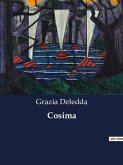Dalla scranna antica che il lungo uso aveva sfondato e sbiadito, era ancora lei, la nonna Agostina Marini, quasi ottantenne e impotente a muoversi, che dominava sulla casa e sulla famiglia come una vecchia regina dal trono. Non le mancava neppure lo scettro: una canna pulita che il nipotino più piccolo aveva cura di rinnovare ogni tanto; buona per dare sulle gambe ai ragazzi impertinenti e per scacciare i cani e le galline che penetravano dal cortile; ma sopratutto buona per frugare nel camino, davanti al quale la nonna sedeva in permanenza d'estate e d'inverno, e specialmente per frugarvi quando era sdegnata con qualcuno, cosa che le accadeva spesso. Perché la canna non si accendesse il...









